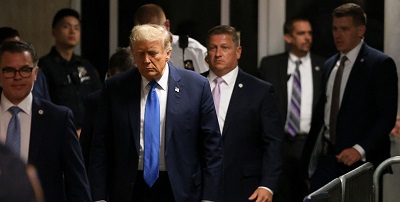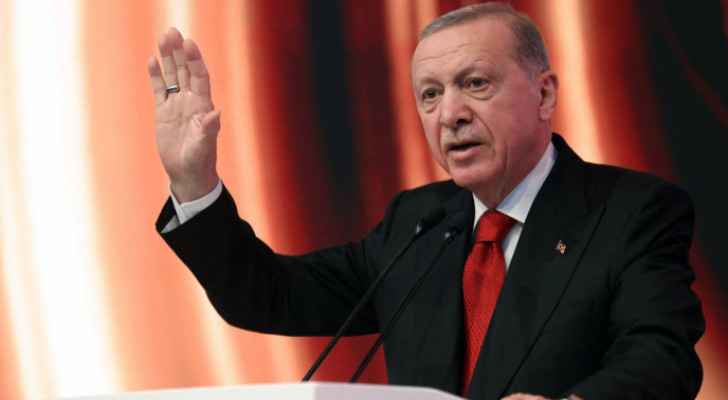Obama’s legacy for the GCC in the Middle East - By Dr. Theodore Karasik, Al Arabiya
In the past eight years, GCC strategic thinking has experienced geopolitical earthquakes brought on by the Obama Administration’s Middle East policy that bodes ill for the 44th US president’s legacy.
When Obama started his tenure of America’s commander in chief, GCC officials were already upset with the Bush Administration’s handling of the US occupation of Iraq and the subsequent Obama Administration’s ending of the SOFA agreement with Baghdad in 2011. The Egypt debacle is also a case where Washington shrank away from supporting Egyptian President Hosni Mubarak.
A new round of damage to GCC interests occurred during the last two years of the Obama Administration and are continuing to bring disorder.
The Joint Comprehensive Plan of Action (JCPOA): The GCC states see that Iran is empowered to further occupy Arab lands and apply direct pressure on the Kingdom of Saudi Arabia thru proxy fights especially on the Yemeni-Saudi border. In Yemen, Iran’s supplying and equipping of arms for the Houthis including missile support continues. A GCC official stated “this is the real US-Iran Grand Bargain we were all worried about. And looked what happened. There is an Iranian proxy state on Saudi Arabia’s border simply because of JCPOA’s impact on the Persian psyche to dominate.” There are moves to amend JCPOA but the damage is already done.
Justice Against Sponsors of Terrorism Act (JASTA): Under Obama’s watch, the US Congress passed JASTA which opens up the door to years of litigation while Americans can sue Saudi Arabia for the events of 9/11. JASTA narrows the scope of the legal doctrine of foreign sovereign immunity which can be used by any legal authority against Americans abroad. There are deep concerns in the US legal community about the impact of JASTA on bilateral economic ties between America and the GCC.
Egypt’s continuing problems: The Obama Administration abandoned an Arab ally in a time of crisis while experimenting with the Muslim Brotherhood as an alternative form of authority to reshape the Middle East by making political Islam a model of governance. The GCC states saw this Obama Administration effort as a direct threat to Arab monarchies. The effort failed miserably and left several countries shattered including Egypt which just received IMF funding while navigating a spat with some Arab allies. The Obama Administration’s support of the Brotherhood can be seen through the Middle East, specifically in Libya. Egypt’s brittle neighbor is now shifting gears again in its civil war with dramatic consequences for the security and safety of North Africa.
Iraq and Syria battle space: The GCC accuses Obama of withdrawing from Iraq before its armed forces were prepared to defend the country while standing by and abetting former Iraqi Prime Minister Nuri al-Maliki’s relationship with Iran that marginalized everyone but the Shiites. The result was the rise and spread of ISIS. In Syria, Obama’s “red line” debacle and lack of resolve to topple Syrian President Bashar al-Assad continues to be a very sore spot. The GCC states see Obama’s, failed strategy gave rise to ISIS, Iranian hegemony, rampaging Shiite militias numbering over 100,000, and a regional proxy war. There is no doubt that Obama’s strategy - or lack thereof - allowed Russia to enter the Middle East as a major regional player that the GCC states see as a new possible partner in some regional contingencies.
Legacy or not?
There are other problems that affect Obama’s legacy - notably the US President’s interview to The New Yorker where he called out “free riders” - but there may be one fortunate consequence: The Obama Administration empowered the GCC states to step out on their own by forcing them to defend themselves from state and non-state threats. The idea that the GCC states do not need America—like they used to—is becoming a solid fact. To be sure, GCC states need American military technology and support, but politically the tide can continue to where GCC states stand up for themselves and fight their own regional battles based on their own realpolitik.
Let’s remember that Obama bequests this legacy to his successor President-Elect Donald Trump who, given his transition team’s smart appointments at the US Department of Defense and the US State Department, leads us to believe that an opening to boost GCC views in the Middle East is forthcoming. Honest, straight talk between the GCC and the Trump Administration will produce necessary dividends in the Middle East.
Gulf Arabs have looked to America and its allies for protection in the Middle East. But the region appears to be “America-less” in the waning days of the Obama Administration. The Obama legacy is tarnished.
Latest News
 Prosecution lays out ‘criminal conspiracy’ in historic Trump trial
Prosecution lays out ‘criminal conspiracy’ in historic Trump trial King from Madaba: Jordan has always proven its ability to move forward with persistence of Jordanians
King from Madaba: Jordan has always proven its ability to move forward with persistence of Jordanians Safadi discusses war on Gaza with French, German delegations
Safadi discusses war on Gaza with French, German delegations Erdogan arrives in Baghdad for first official visit since 2011
Erdogan arrives in Baghdad for first official visit since 2011 “Israeli” army says it approved plans for “continuation of war in Gaza”
“Israeli” army says it approved plans for “continuation of war in Gaza”
Most Read Articles
- Turkey’s Erdogan in rare Iraq visit to discuss water, oil, security
- Safadi discusses war on Gaza with French, German delegations
- King from Madaba: Jordan has always proven its ability to move forward with persistence of Jordanians
- Prosecution lays out ‘criminal conspiracy’ in historic Trump trial
- Jordan sends 51-truck aid convoy to Gaza
- German envoy for Middle East hails Jordan’s role in Gaza aid
- Jordan applauds Azerbaijan-Armenia border agreement
- FAO organises workshop on ecosystem-based water solutions
- US Supreme Court weighs ban on homeless people sleeping outside
- Japan hands over ultrasound equipment to the JNRCS